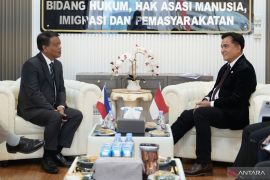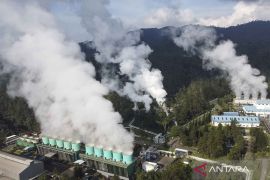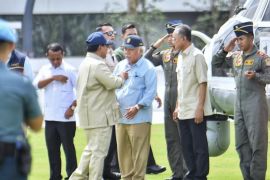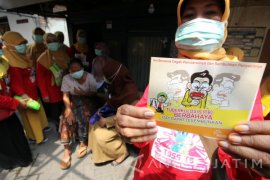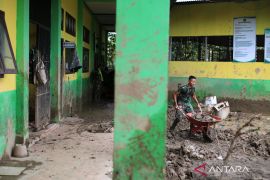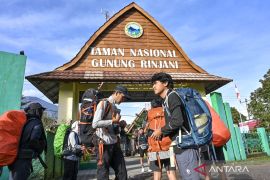Since the restoration of democratic rule in Pakistan in 2008, at least 34 journalists have been killed because of their work, Amnesty said, but the culprits have been brought to justice in only one of those cases.Islamabad (ANTARA News/AFP) - Journalists in Pakistan are "under siege", Amnesty International warned Wednesday, living with the constant threat of violence from intelligence agencies, armed groups such as the Taliban and even political parties.
The rights group said in a report that the authorities have "almost completely failed" to stem attacks on the media or hold those responsible to account.
Since the restoration of democratic rule in Pakistan in 2008, at least 34 journalists have been killed because of their work, Amnesty said, but the culprits have been brought to justice in only one of those cases.
Amnestys report says the journalist death toll is only one part of a broader picture in which reporters have been threatened, abducted or tortured for their work.
"Pakistans media community is effectively under siege," said David Griffiths, Amnesty Internationals Deputy Asia-Pacific Director.
"Journalists, in particular those covering national security issues or human rights, are targeted from all sides in a disturbing pattern of abuses carried out to silence their reporting."
Covering almost any sensitive story leaves journalists at risk from one side or another -- militants, intelligence agencies or political parties -- putting them in an "impossible position", Amnesty said.
The report comes as a furious row rages between the Inter-Services
Intelligence (ISI) agency and leading media group Jang over the shooting of top TV anchor Hamid Mir.
The ISI has faced accusations of complicity -- hotly denied -- in the attack on Mir, the host of primetime chatshow "Capital Talk" on Jangs Geo TV station.
Mir is the second high-profile journalist to escape an attempt on his life in the past two months, after columnist and chatshow host Raza Rumi.
Amnesty said numerous journalists it interviewed for its report complained of harassment by the ISI and would not be named because they feared for their lives.
"The spy agency has been implicated in several abductions, torture and killings of journalists, but no serving ISI official has ever been held to account --allowing it to effectively operate beyond the reach of the law," Amnesty said.
The 60-page report "A bullet has been chosen for you: Attacks on
journalists in Pakistan" is based on research into more than 70 cases and interviews with more than 100 media workers.
While the nature and details of abuses vary from case to case, Amnesty said, all share the same aim: to "silence the media and stifle public debate".
It is the influence Pakistans diverse, vigorously competitive media has on political life and national conversation that makes various factions seek to silence them, the report says.
Journalists face threats from a host of sources, according to Amnesty, including ISI, the Pakistani Taliban, Al-Qaeda-linked groups, ethnic Baluch rebels, Lashkar-e-Jhangvi (LeJ) militants and the Muttahida Qaumi Movement (MQM), a political party dominant in Karachi.
Soon after he condemned a Taliban attack on an Express TV crew in Karachi, Rana Muhammad Azeem, the president of the Pakistan Federal Union of Journalists, received a call from someone claiming to be from the Taliban.
"He scolded me for speaking out against them and told me a bullet has been chosen for you," Azeem said in the report.
Faced with these kinds of threats and all too aware that those making them are prepared to follow through, many journalists resort to self-censorship to protect themselves, said Griffiths.(*)
Editor: Heru Purwanto
Copyright © ANTARA 2014
